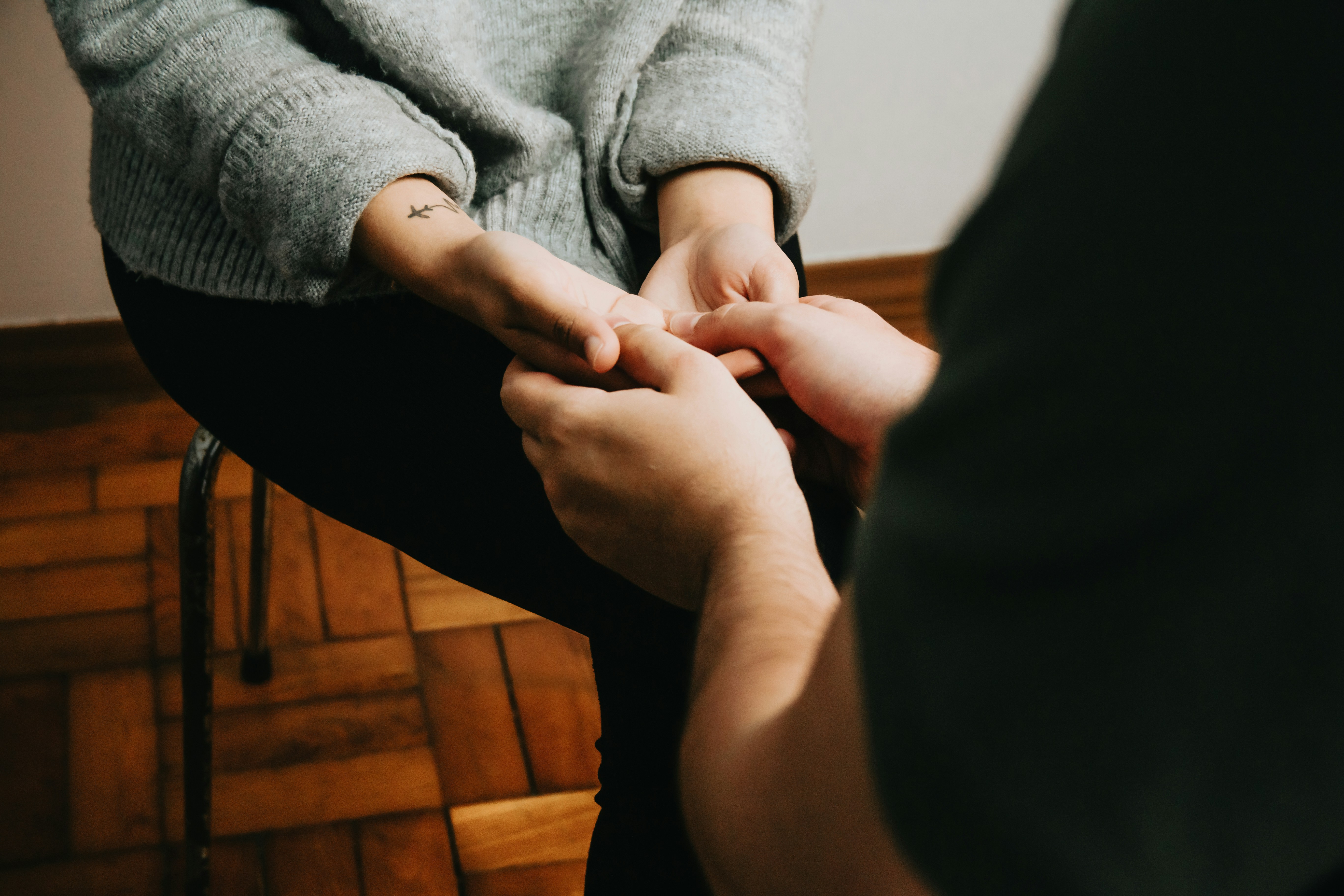
You’ve heard that Gabapentin might be helpful for anxiety, and you’re wondering what you need to know.
Gabapentin is a prescription medication meant to prevent seizures and treat nerve pain. Though its intended use is for conditions like epilepsy and lingering neuropathic pain from shingles, some doctors might also prescribe Gabapentin to treat symptoms of anxiety. This is considered an off-label use, meaning that the FDA doesn’t have enough data to conclude that it's effective in treating anxiety.
Whether you’ve just been prescribed gabapentin for anxiety or are simply wondering if it might be right for you, we’ll cover everything you need to know.
What is Gabapentin?
Gabapentin is in a class of medications called anticonvulsants. It is sold under brand names including Neurontin, Gralise, and Horizont. Anticonvulsants help control nerve impulses so they don’t become excessive or uncontrollable, which is why they are effective in controlling seizures.
In addition to the treatment of anxiety, Gabapentin has several other off-label uses; such as alcohol withdrawal and hot flashes.
How does Gabapentin work?
Gabapentin was designed to mimic a naturally occurring amino acid called GABA. GABA works as a neurotransmitter in your brain. It delivers messages between neurons, and controls how quickly information travels through your nervous system. Having the wrong levels of GABA could mean that your brain has trouble processing information and stimuli at a steady pace – and that might leave you feeling anxious or overwhelmed.
Gabapentin mimics GABA by slowing down or stopping the messages in between your nerve cells. Less of those messages can mean less nerve pain, less seizures, and even less anxiety. GABA is thought to have a calming effect on the nervous system and the brain.
Does Gabapentin treat anxiety?
Researchers don’t know definitively whether Gabapentin adequately treats anxiety, and the FDA does not have the clinical evidence needed to approve the drug for its use. However, some of the preliminary findings have shown positive results. A 2009 study found Gabapentin may alleviate symptoms of social anxiety; while a 2017 case study found Gabapentin to be effective against Generalized Anxiety Disorder. One of the larger studies, conducted in 2012, found Gabapentin to be extremely effective in reducing anxiety in breast cancer survivors. Based on the limited research, as well as the science behind GABA, many doctors believe that Gabapentin could be a plausible treatment for anxiety; especially for people who do not respond to other first-line treatments.
What are the potential side effects of Gabapentin?
Gabapentin is generally well-tolerated, but all medications can cause side effects.
Some of the common side effects include:
- Feeling tired
- Dizziness or weakness
- Changes in mood
- Tremors
- Constipation
- Headache
- Dry mouth
- Fluid retention
There are some much rarer, more serious side effects to watch for, including:
- Depression
- Suicidal thoughts
- Anaphylaxis
- Severe rash
- Seizures (if medication stopped abruptly)
If you think you’re experiencing side effects from Gabapentin, let your healthcare provider know right away. Remember, never stop or change medications without checking with your doctor first.
How should you take Gabapentin?
It’s important that you follow your doctor’s instructions exactly when taking Gabapentin, and do not take more or less than prescribed.
Gabapentin comes as a capsule, a tablet, and a liquid solution. All are taken with 8 ounces of water, with or without food.
Typically Gabapentin doses range from 300mg to 3600mg daily, and is generally divided into 3 doses. It should be taken at evenly spaced times throughout the day, with no more than 12 hours in between doses.
Gabapentin also comes as an extended release tablet. This formulation is taken with food once daily, usually in the evening since the medication may help you sleep. You should swallow these tablets whole - do not crush, chew, or cut them.
It may take several weeks to feel the effects of Gabapentin. One study showed that the drug was effective in treating anxiety after 4 weeks of taking the medication.
Be sure to tell your doctor about any other medications or supplements you’re taking, so they can screen for any negative interactions and be confident that this is a safe treatment for you.
What are some other options for treating anxiety?
While Gabapentin is a viable option for some people in treating anxiety, there are many other options that might work for you. Here are some alternative anxiety treatments your doctor may prescribe:
- Antidepressants: In addition to treating depression, antidepressants are often also effective at treating anxiety. SSRIs and SNRIs have shown to be useful in improving symptoms of Generalized Anxiety Disorder, but they don’t work for everyone. Wellbutrin, an atypical antidepressant known as an NDRI, is also sometimes prescribed off-label to treat anxiety.
- Buspirone: Buspirone is a drug that is believed to help manage serotonin levels in the brain. Since low serotonin levels are associated with feelings of anxiety, it is sometimes prescribed to treat Generalized Anxiety Disorder. While it isn’t a first-choice medication for anxiety, a doctor may prescribe buspirone in addition to an SSRI or SNRI if it isn’t working well enough by itself.
- Benzodiazepines: Benzodiazepines also work by increasing GABA in the brain. They can induce feelings of calmness quicker than Gabapentin or other types of medication, and therefore often treat acute or short-term anxiety and panic disorder.*
*Mindful Care does not prescribe any controlled substances or habit-forming medications; but we will help find a safer alternative for you to get the treatment that you need.
- Beta-blockers: Beta-blockers are generally meant to treat high blood pressure or heart problems, but sometimes doctors will prescribe them off-label to treat anxiety.
Beta-blockers work by blocking the action of adrenaline; and have shown to alleviate some of the physical symptoms of anxiety, such as increased heart rate or trembling.
- Supplements: You may be able to relieve some of your anxiety with over the counter remedies. Supplements such as chamomile, magnesium, and valerian root may help increase levels of serotonin in your body, or induce feelings of calm. Even though you can get these supplements without a prescription, it is still advised to discuss with your doctor first - these supplements could have dangerous interactions with drugs you’re already taking.*
*It’s very important to note that supplements are not regulated by the FDA, and there is very little evidence that they can truly treat anxiety. We recommend therapy and medication management under the supervision of a qualified healthcare provider to ensure you get the support you need.
- Therapy: Psychotherapy has shown to be highly effective in managing anxiety. In fact, some research has shown that Cognitive Behavioral Therapy (CBT) is just as effective as some medications in reducing anxiety symptoms. Many people need a combination of both medication and therapy to adequately treat their anxiety.
Key takeaways
Gabapentin is a medication that doctors might prescribe off-label to treat anxiety. While the FDA has not approved its use for anxiety due to limited data asserting its effectiveness, it can be a safe option for many people in managing their anxiety. Gabapentin must be taken exactly as directed and under the supervision of a qualified healthcare provider. Be sure to ask about potential side effects of taking this medication, and discuss alternate treatment options with your doctor in the case that Gabapentin doesn’t work for you. Ongoing care is crucial in managing your mental health, and psychiatrists are available to help you get the treatment you need.
Sources
Psychiatric Uses of Gabapentin - PMC
List of Anticonvulsants (AEDs) - Generics Only - Drugs.com
gabapentin | Ligand page | IUPHAR/BPS Guide to PHARMACOLOGY
What is GABA? | Mental Health America
Gabapentin and Tiagabine for Social Anxiety: A Randomized, Double-Blind, Crossover Study of 8 Adults
Treatment of Generalized Anxiety Disorder with Gabapentin - PMC
Gabapentin: MedlinePlus Drug Information
Treatment-resistant anxiety disorders | Molecular Psychiatry
Beta-blockers in anxiety disorders
CBT and medication in depression (Review) - PMC






